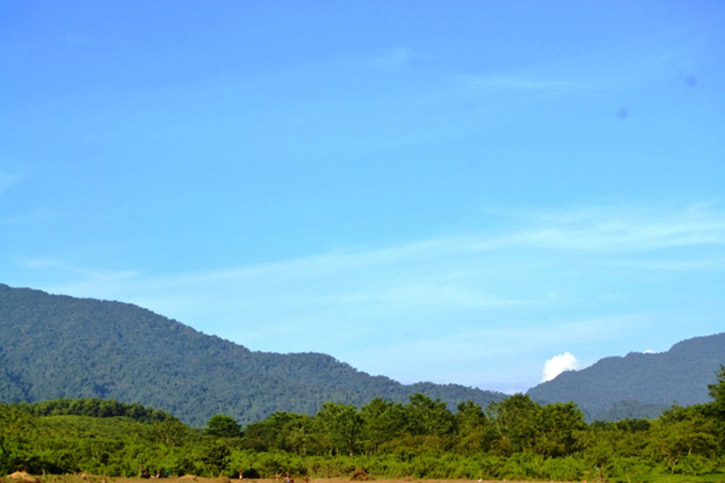
Let’s go to Lovachora.
Some travel to different parts of the world to experience different things. Another group of people set out for a tourist destination in the country to get rid of the monotony of civic engagement. And Lobachhara in Kanaighat upazila of Sylhet is such a place.
Along with the natural beauty, you can see the tragic picture of life struggle in this backward area of the north-eastern border upazila.
What you will see:
On the other side is a small river of rock and sand coming down from the Khasia-Jaintia hills of India. The name is greed. Every year during the rainy season, this rhyme brings thousands of tons of stones and sand. Starting from the bottom, there are stones and rocks all over the place. At the beginning of the dry season, huge work begins there. Tons and tons of stones are lifted. A group of needy but brave workers came running from different parts of the country. He went down to pick up stones. Sometimes banned bomb machines and sometimes they started picking stones in the traditional way.
Accidents often occur while doing this risky job. The unfortunate workers have to be corpses when the banks of big holes collapse. But still the work does not stop. The work goes on from morning to evening in the greed of the big money paid by the moneylender. Some dig deep into the hole, and others transport it. Their eating and drinking, resting or sleeping — everything is in the quarry. They built small huts on the sand and stayed there.
Picking up stones from the bottom of the rhyme is legally punishable. But a lot of workers made stones by boat. The water is removed by running a kind of machine, then making stones with a special kind of net like fishing. Apart from this, you can visit Lobachhara tea garden along with the beauty of Meghalaya hills. The shrine of Hazrat Meeraping Shah, one of the companions of Hazrat Shahjalal (ra), is locally known as Mokamatila, if you cross the small risky bamboo bridge over the river. Extremely poor people live in the whole area, it is clear to see.
And the enchanting environment in the rainy season. Lobachhara Lake, the greenery of the tea garden and the forestry of the forest department fascinate the tourists. Apart from that, wild chickens, deer, rabbits can also be seen in the tea garden. The beauty of Khasia-Jaintia hills can also be enjoyed by standing on any hill.
How to get there:
Three trains leave daily from Dhaka’s Kamalapur and Cantonment railway stations for Sylhet. You can reach Kadamtali bus stand in South Surma for 300 to 600 TK. In addition, the bus will cost 300 to 600 TK. From Kadamtali to Bandarbazar CNG autorickshaw reserve can be reached within one hundred TK.
From there it will cost five to six hundred rupees to go to Kanaighat Upazila Sadar by reserve CNG autorickshaw. You can go to the autorickshaw of the serial. The cost is 100 TK per person. Apart from that, if you go to Subhanighat bus stand of the city by renting a rickshaw for 10 taka, you will get a bus going to Kanaighat.
The cost is 60 to 70 TK per person. The distance from Kanaighat Upazila Sadar to Lobachhara is about 9 km. If you take a CNG autorickshaw to go on a dirt road, it will cost five hundred to six hundred rupees. Without reserve the cost will be 100 rupees per person. You can go by water, by boat. The cost per person is 40 to 60 TK. And if you take a reserve boat, it will cost 900 to 1000 TK.
Where to stay:
There are various quality residential hotels in Zindabazar, Bandarbazar, Mirabazar Dargah Gate, Amberkhana areas of Sylhet metropolis. Staying in these hotels will cost 200 to 600 rupees per person. Apart from this, there are several elite residential hotels in Sylhet.